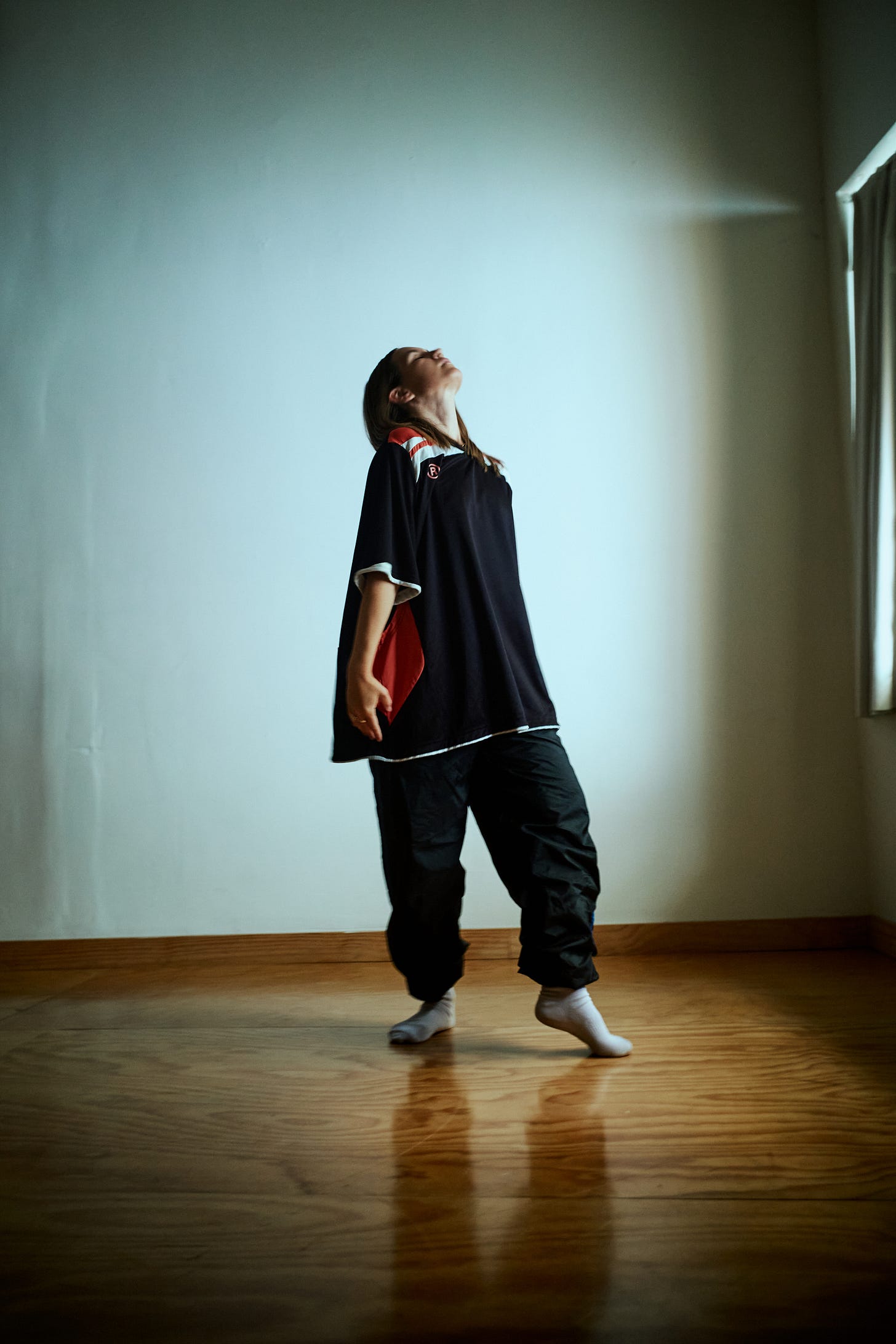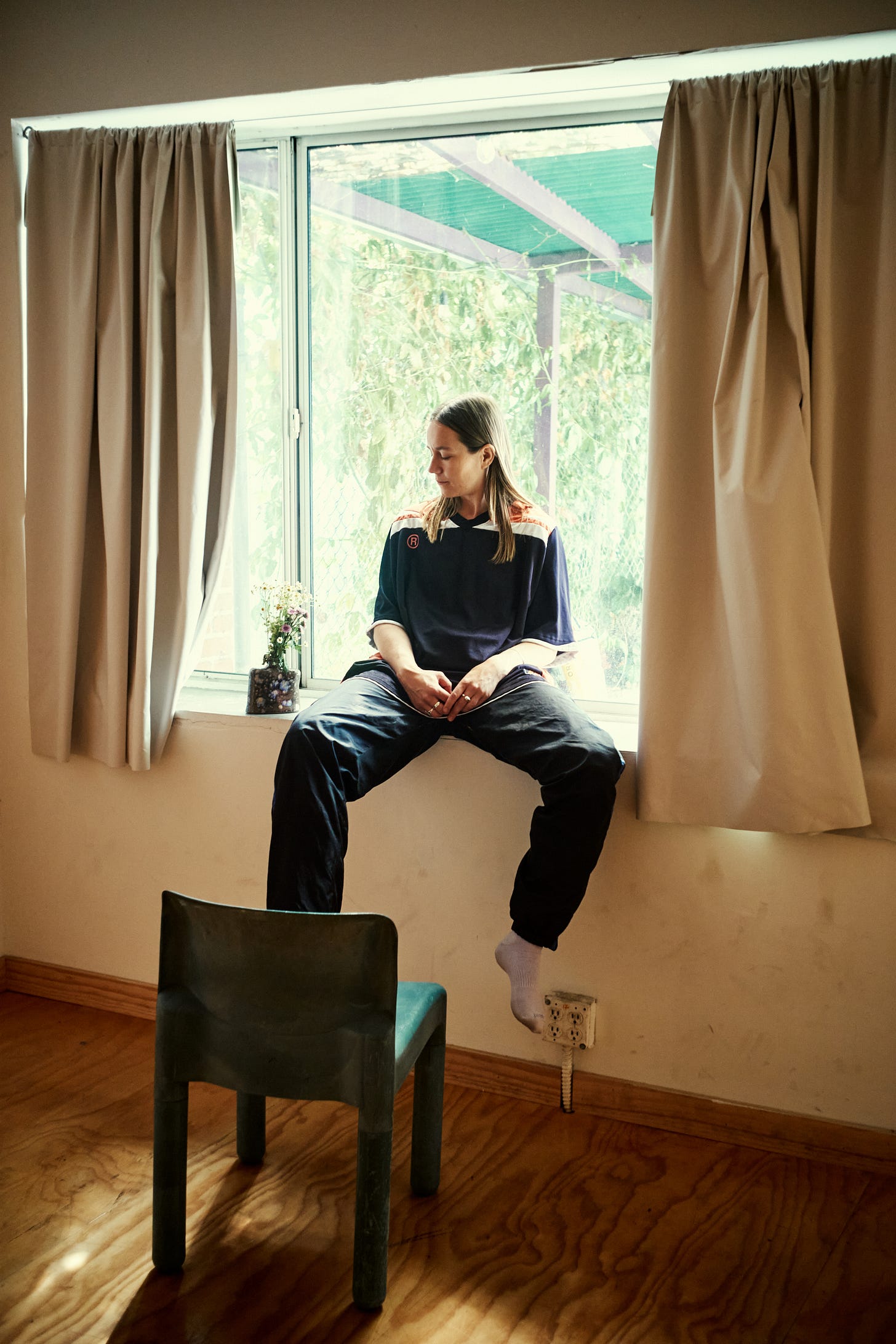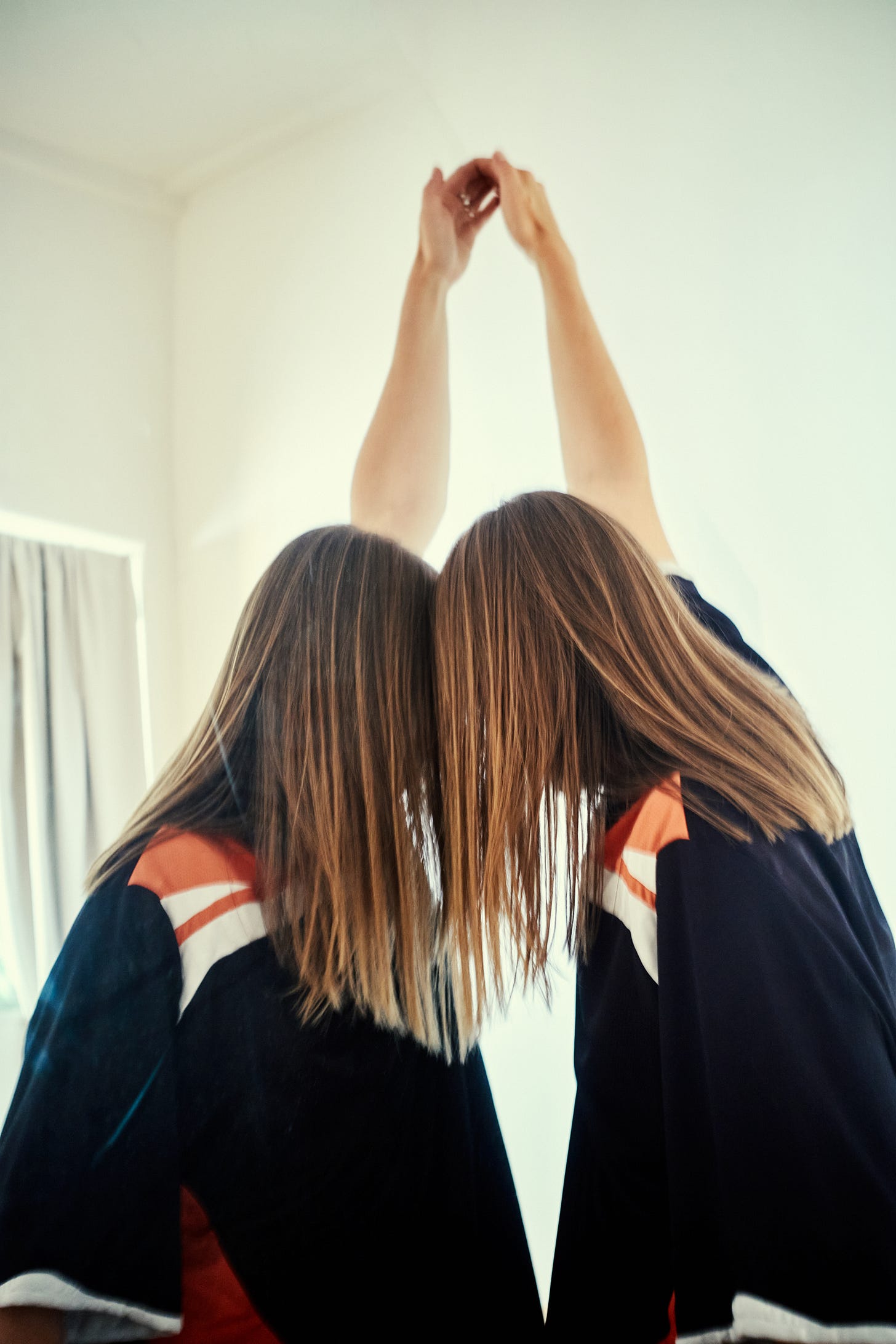ANOTHER PLANE
12 Questions with dancer, choreographer, and founder, Kate Wallich
Kate Wallich, in the deterministic view, believes she is always exactly where she needs to be. Lately, that’s been converting a lifelong love of dance and choreography—honed at a young age at the Interlochen Arts Academy in her home state of Michigan—into Dance Church, a venture-backed fitness company that offers a healthy daylight alternative to the rush frequently sought out at late-night, lawless warehouse parties. What started as an intimate Sunday morning thing in Seattle has morphed into kind of a big deal with classes on offer on the WWW and also IRL in New York, Los Angeles, Chicago, Boston, and more. Out there, Wallich and her acolytes create a safe space for people to move their bodies and wild inwards—and out—without all the body shame and all the drugs and alcohol. Wallich opens up about the spiritual power of dance, setting healthy boundaries in sobriety, and moving through life—and business—with a multidimensional and far from capitalistic conception of success.
How is movement a spiritual experience?
When I’m resonating with my body and I’m in a place where I can feel things and sense things, I can actively make the choice to go somewhere. With the trifecta of really good music, dance, and being around other people, I can basically black out. And I think that that is a spiritual experience and one that’s healthy and doesn’t put people’s lives at risk. As a facilitator and an educator, one of my biggest joys is to give people that experience. A lot of people go through life not being embodied and not even really knowing how to tap in or tune into their bodies. I think part of the reason people feel so good when they’re moving their bodies is that they’re on another plane, a sensorial plane. They’re tapping into and regulating their nervous systems. They’re in a place of hyper presence. And in that place, you can make choices that can take you to the places you want to go.
Has sobriety changed the way you dance?
Dance was my only God. I would dance to get away. I would go into the studio as a sacred practice as I imagine people would go into a place of worship. But when you start to rely on that place and that place becomes monetized and how you survive financially, it can no longer be the only way of finding God. Dance is something that gets me closer to God. But, it’s also my career. It’s my work.
What is your mission with Dance Church?
To bring the joy and release of dance to everybody. Everybody is a lot of people. It’s a big mission. I was raised in the dance field which has a very non-profit mentality. I started Dance Church just trying to get people to move their bodies. And now we’re on this trajectory, like, Series C, Series A, all that. But as long as that growth is creating community and putting goodness into the world, I’m all for it. It’s not like we’re some fintech company, or something.
Why do you think so many people are convinced that they can’t dance without drinking?
Even though everybody has one, people are so scared of their own bodies. Bodies need a rebrand.
Where do you find inspiration?
Living in LA. Driving around and seeing so much high and low. Like, really trashy and really glitzy. That does it for me. I don’t go into nature to find divine inspiration. I just need to be around people making fucked up shit. When I get empty, I seek out the avant-garde. I see dance. I see theater. I go to the symphony. I go to a lot of design lectures. And when I’m too full, I’m like, “Okay, now I need to stop seeing things and start making things.”
Who is your dance hero?
Twyla Tharp. She’s a great example of a dance artist who really found the intersection of art and commerce. It’s hard to find that balance. If you watch her dance when she was young, she was definitely channeling some other spiritual realm. She was a freak. But she realized that if she just did that, she wouldn’t be able to survive. So she put more intention into choreographic work and shifted her practice into something that could sell tickets. As someone who is an entrepreneur and also a dancer, I find that really inspiring.
Moving the body seems to be a big part of the sobriety routine for a lot of people. Why do you think that is?
Movement is how you process lived experience. It’s how you regulate your nervous system. Sweating is the most cathartic thing ever. There’s a lot you can do when you tap into your body.
What’s the best piece of advice you’ve ever received?
“The feeling will go away.” When I feel something, I feel it everywhere. I want to act on everything. It’s just the way I am. But there can be space after you have a feeling. You don’t have to act on every trigger. Generally, when I instantly act on anything that I feel, it does not go well. Actually taking that advice is something I actively have to do.
What’s one thing you thought you could never do sober that you’ve done sober?
Disappear. I turned to alcohol to not have to deal, to be fuzzy, to be blurry, to go away. I was scared to not have that anymore. But I’ve found so many other ways that I can do that, just in my body, in my practice. I’m thankful that I can still get to the places that I need to go spiritually without having to wake up hungover. I love not being hungover. It’s the best thing ever.
What do you think scares people the most about not drinking?
Actually having to deal with themselves. One hundred percent. That’s the scariest thing ever.
How has sobriety affected your relationships with the people closest to you?
I’m a lot clearer with my boundaries. I have more control over how vulnerable I am with people rather than just being an unhinged mess with everybody because I have no boundaries. I’m also way more intentional with my relationships. I want to invest in the people I love. I don’t want to invest in just anybody.
In your mind’s eye, what is the shape of success?
Success is a constellation. It can’t just be one-dimensional. It has to be many different things. For some reason I’m thinking about people who are polyamorous, like, “I can’t get everything from one person,” you know? For me, success is poly.
Text by Andrew Smart / Photos by Roman Koval







